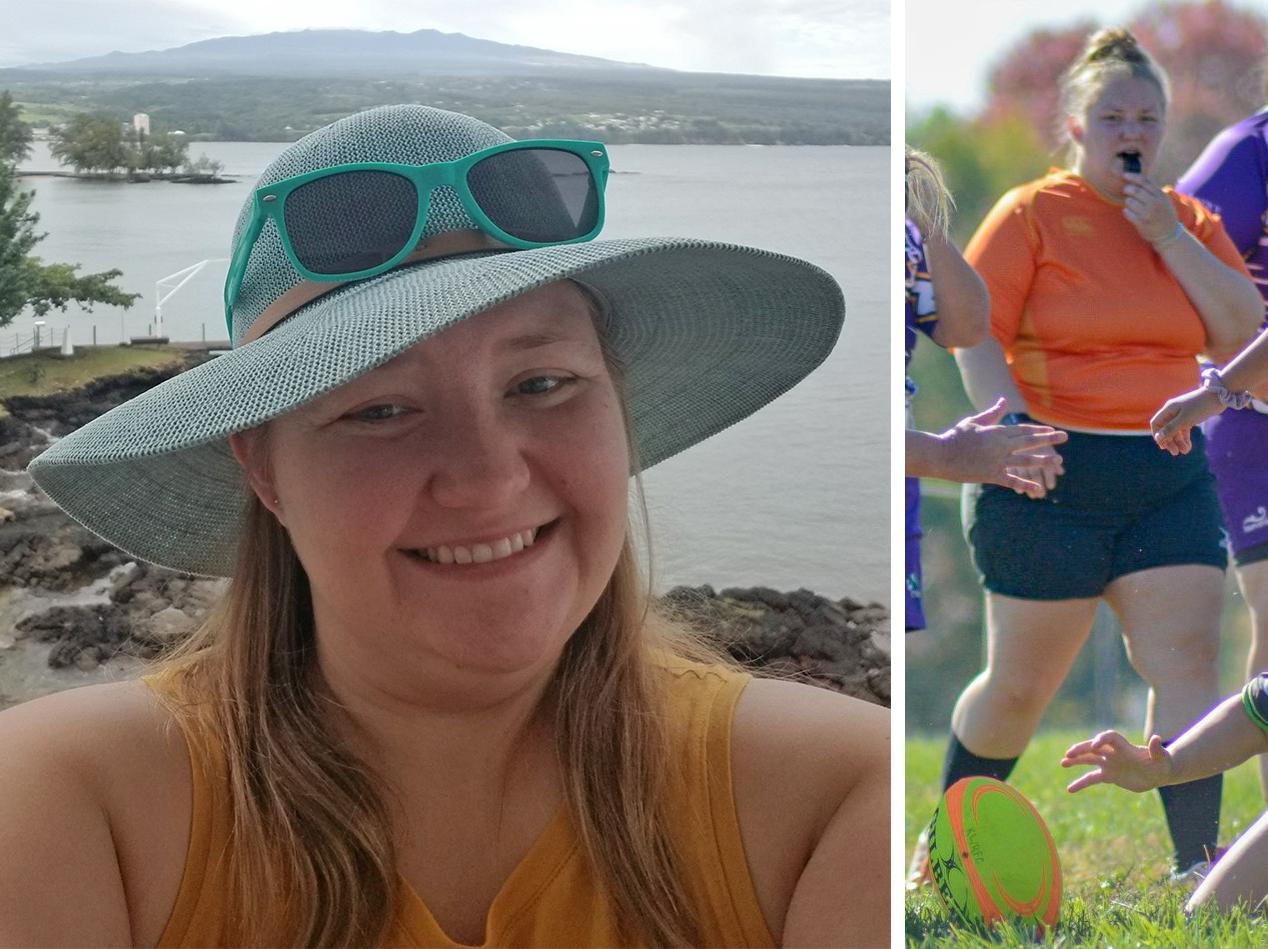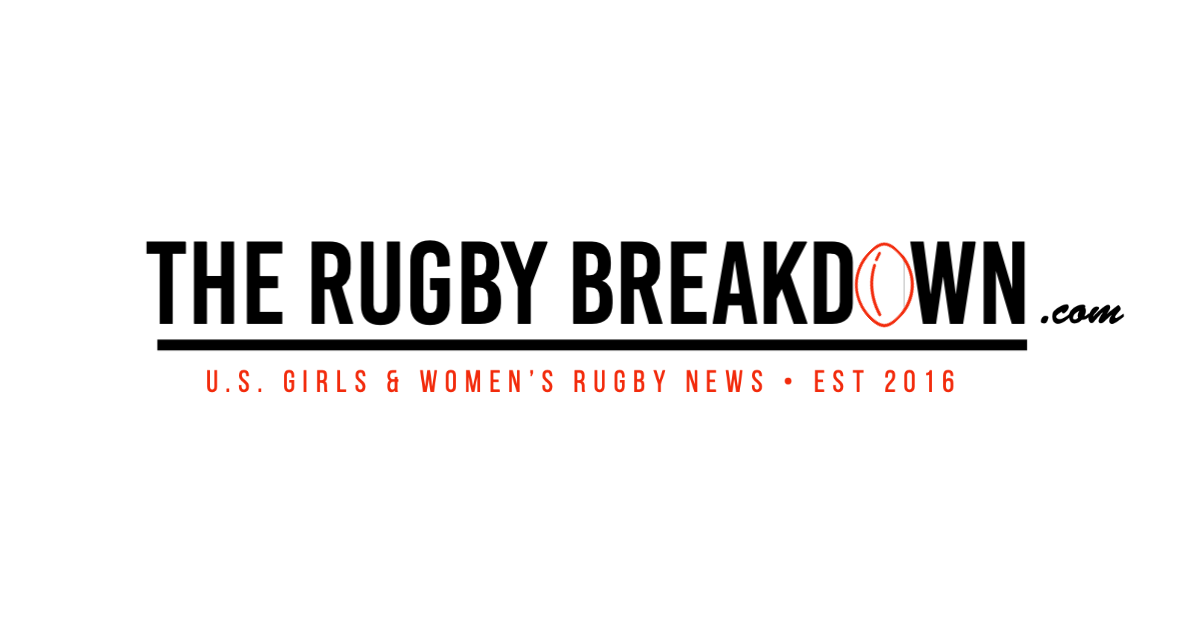
After her first shoulder surgery, Nichole Reiske began to consider the longevity of her rugby-playing career. After the third shoulder surgery, the Lawrence, Kansas, native fully committed to coaching, refereeing and administrating the sport, and did so with the Kansas Bison, Mid-America RFU (MARFU) and MARFU Referee Society. But it wasn’t until USA Rugby announced plans to restructure that Reiske became interested at the national level.
Four years ago, Reiske was serving as Kansas Bison president and assistant coach, and accompanied head coach KJ Abel Ruch to the MARFU AGM. She did not anticipate running for a board position, but then secretary opened up.
“No one wanted it,” Reiske recalled her entry into the Geographic Union (GU) administration. “I’ve been president and treasurer for other organizations, so I knew I could do it. From there, I’ve just picked up my involvement.”
But Reiske wasn’t thinking about national-level involvement until USA Rugby started reorganizing earlier this year. She sat back and watched as a new governance structure evolved and the Senior Club Council formed. Reiske’s attention piqued when the committees were announced, because there was a new one on offer: Diversity, Inclusion & Equity.
“I want to be a part of that,” recited Reiske, who was announced as committee chair last week.
“Everyone’s always wanted to be on the Discipline Committee or Eligibility Committee, because they want to help govern the nation and how we play,” she added. “But diversity and inclusion are at the forefront of the country’s current climate, and you have to face it in every aspect of our culture.”
Reiske specializes in diversity, inclusion and equity, and has done so for the previous 14 years as a disability services professional. She is the Director of Support Services at Community Living Opportunities and co-chairs the company’s diversity committee. She has applied her expertise to the Kansas Bison, adapting practice plans to the varying needs of teammates. That player might be a mother with kids in tow, someone with extreme anxiety, a transgender person, someone wearing religious garments, or an injured playing idling on the sideline.
“How do you create an environment that best fits their needs and is appropriate for the rest of the team,” Reiske connected her profession with rugby.
If a team and/or its management has the resources to craft a practice, game or social event that values everyone’s needs and engages teammates in a meaningful way, then positive experiences develop, players returns, and diversity is cultured.
“My whole thought is: Rugby has to be diverse from the bottom up,” Reiske said. “But we have to be able to reach all of these coaches, referees, administrators, who are mostly volunteers at the club level. We need to build these resources so they can adapt their practice plans, coaching styles for different diversity areas.”
Reiske also needs data, a starting point, so progress and deficiencies can be gauged.
“There hasn’t been a lot of diversity and inclusion data put out by USA Rugby in the past, and if it has, it wasn’t as complete as it needed it to be for anyone who really wanted to look at it,” Reiske said. “We need to get actual diversity data from our unions so we know where we’re at and if we’re actually improving.”
Diversity is also recruitment and will be key during the time of Covid-19, when participation in team sports will suffer. Reiske pointed to Alaska, which opened up for fall rugby and had dismal numbers return.
“This is the time to change our recruiting strategies,” Reiske said. “This is the time to change what we’re doing as a nation with rugby because if we don’t get certain workforces or certain types of players back, then we have to get people from somewhere. We have to pull from new groups or ones that we used to compete with, because maybe their sports aren’t coming back as quickly as rugby. We can modify our game to touch or 7s or other things, and other sports can’t do that. So now is the time to zone in on how to recruit from those areas. This will be our strength if we can pull it off.”
Reiske foresees these adaptations at the club level bubbling upward and translating into diverse leadership at the GU then national levels.
“Diversity in USA Rugby has a long way to go but we need to start pulling that diversity up. Pull it up in the club level, the GU level, and then hire from there,” Reiske said. “Five of the nine members on the executive committee are women, which is fantastic. The women’s population is getting there, but more work is needed.”
Megan Braun, Tam Breckenridge, Jill Williamson and Katie Wurst join Reiske on the USA Rugby Senior Club Executive Committee (read more for the entire lineup), but there are no Black, Indigenous or people of color represented yet. The Senior Club Council needs to name its two representatives to the USA Rugby board, and then it will determine how to fill the committees with members.
“We want to have a town hall for questions and to get a feel for what the community wants,” Reiske said. “It will be an open, public forum, so we can do it right. But it might take a couple of weeks.”
Meanwhile, Reiske is vetting the committees’ qualification statements and pushing GU presidents to garner a diverse response from their memberships.
“We’ve talked about different opportunities for candidates, for all committees,” Reiske said of conversations with GU presidents. “First, you establish a certain level of competency, and then it’s fair game [who is selected]. If all the top people are older white men … then maybe you consider the second or third candidate, as long as the competency level is there.
“There’s been discussion about removing all region and division markers and all that from any kid of application so we’re truly picking blind, but my fear is that the majority of people who will apply for the committees will be the population that we’ve always had, so we’d be shooting ourselves in the foot with diversity,” Reiske added. “We don’t want to form this committee and then nothing changes. But all I can do is encourage and support. I can’t make the unions do anything. They can vote me down. So I can make all kinds of recommendations but it’s up to the unions how much they want to change.”
But an informed population can also influence change, and that is a big agenda item for Reiske. Once the committee-filling processes are finalized, Reiske wants to ensure that information permeates the community.
“We’re working on getting info to every single player – not just to the club president or a team’s executive board,” Reiske said. “With the lack of transparency we’ve seen before, we know that some information isn’t getting down to the lower level.”
With that said, Reiske is expecting a lot of interest for the Diversity, Inclusion & Equity committee, not only because it’s a new group but because it’s particularly relevant to today, and outside of rugby.
“As soon as people learned that this committee existed, they started reaching out to me,” said Reiske, who wants to cap the committee at eight members. “But I also think you’re going to see a lot more applications than you would have seen a year ago.”
Reiske encourages anyone who wants to contribute to the conversation – regardless of whether they aspire to be on the committee or not – to contact her. She’s open to all voices and is culling all suggestions and information as the committee takes shape.


